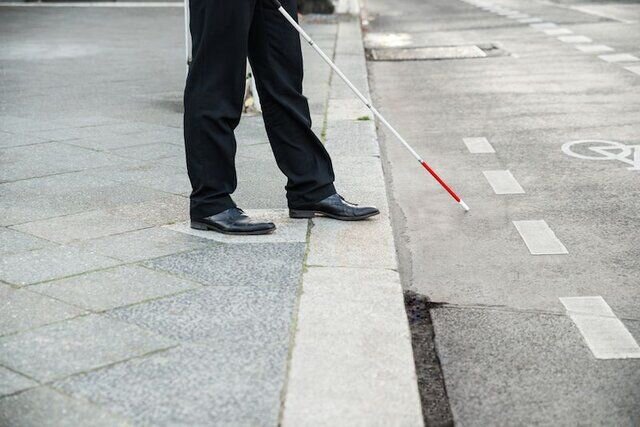Welfare organization's diverse services to the visually impaired

TEHRAN - Based on its objectives and duties, the Welfare Organization tries to expand its services to the blind and the visually impaired people to pave the way for their empowerment and social integration.
Part of the main efforts of the organization is devoted to the implementation of preventive programs, mainly to prevent Amblyopia (lazy eye) with the cooperation of the Ministry of Education.
It also sets up awareness programs regarding the prevention of all kinds of disabilities throughout the country in the form of films, pamphlets, and educational workshops.
The development of genetic counseling programs in specialized centers all over the country is among the most important parts of these programs.
The Welfare Organization emphasizes that the empowerment of the blind person requires the provision of rehabilitation services, immediately after the diagnosis of the injury, in accordance with their needs.
Therefore, the provision of psychological counseling services to the blind or low-vision person, the training of daily life skills such as mobility and orientation, and the improvement of alternative sense skills are provided in rehabilitation centers.
Braille learning, using Braille hardware and software facilities, and working with electronic devices are among the other services provided in these centers.
Reducing their physical activity limitations and increasing their performance requires the use of rehabilitation aids that suit their needs.
Therefore, needs assessment programs are carried out across the country to identify their needs and health services and devices needed to meet these needs.
Devices such as white canes, Braille and Talking watches, computers, Braille Personal Digital Assistant (PDA), screen readers, and magnifiers are provided to blind and low-vision people.
In this regard, with the cooperation of non-governmental associations active in the affairs of the blind throughout the country, programs focusing on teaching communication skills, daily life activities, working with computers, providing psychological counseling services, sports, and leisure have been considered.
These trainings are provided based on the type of needs and prerequisite skills of the blind and visually impaired people, particularly in the field of job skills, trainings are provided in accordance with the daily requirements of the society, and if necessary, people are referred to specialized training centers in the field of technical and artistic skills.
Providing numerous braille and audiobooks, equipping public libraries across the country, and helping non-governmental associations to provide library services to the blind are other steps taken.
Facilitating the participation of the blind and low-vision people in the national university entrance exam by providing them readers and helpers, and allotting extra time for them are also implemented.
Welfare organization also awards scholarships and incentive grants to visually impaired students.
To increase blind and visually impaired people’s accessibility to cyberspace/ internet and its programs, numerous consultations have been arranged with knowledge-based companies and various software producers so that their products and services meet the needs of blind and visually impaired people, too, and they can benefit from these services using Braille and Audio facilities.
Also, joint meetings have been held with the executive bodies to increase job opportunities for the blind in these institutions, including the Ministry of Education, updating the organization's databases according to the job needed by these people and following up on their probable problems in workplaces are part of the actions taken in this regard.
The above-mentioned issues are part of the services provided by Welfare Organization which aims to improve the lives of people with visual impairment. It has also tried to raise awareness of other institutions regarding the low-vision people and the blind's needs and abilities via constant communication to pursue their rights.
World White Cane Day
World White Cane Safety Day, often referred to as World White Cane Day, is observed on October 15th. It is a global initiative dedicated to emphasizing the importance of the white cane as a symbol of independence and mobility for the blind and visually impaired. This day serves as a reminder that mobility is a fundamental right for all individuals, regardless of their visual abilities.
It promotes awareness about the challenges faced by blind people and advocates for their rights, equal opportunities, and inclusion in society.
Through various events, activities, and educational campaigns, World White Cane Safety Day not only celebrates the capabilities of blind individuals but also fosters a more compassionate and accessible world for everyone.
It highlights the idea that, with the right support and understanding, individuals with visual impairments can navigate the world with grace and confidence.
Leave a Comment